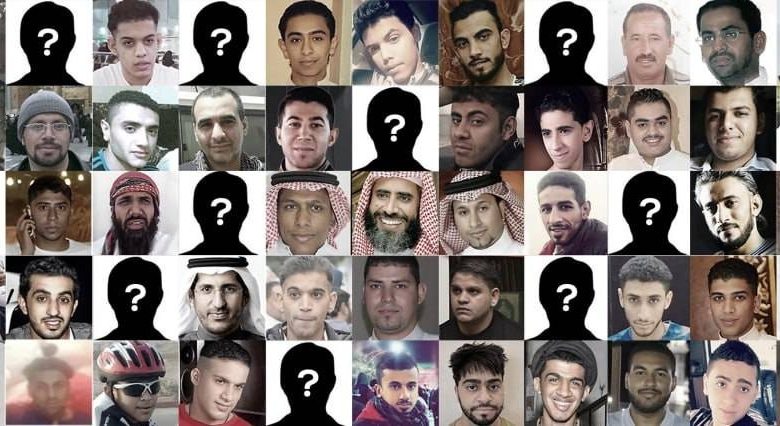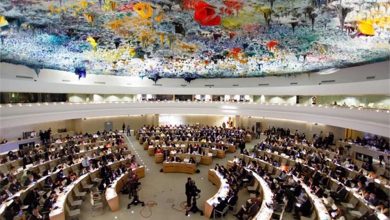ESOHR: Saudi weaponises secrecy to increase their arbitrary death penalties

According to the European Saudi Organization for Human Rights, Saudi authorities employ secrecy as a weapon, exacerbating their arbitrariness in implementing death sentences, making the kingdom one of the world’s most prolific executioners and amplifying their violations.
The organisation highlighted the accompanying violations surrounding the death penalty in Saudi Arabia, turning it into a continuing and arbitrary punishment that tramples upon the fundamental rights of the victims and their families.
In a human rights report, the organisation states that Saudi Arabia violates international laws, principles, and recommendations, including its own commitments, such as the Convention against Torture, the Convention on the Rights of the Child, and domestic laws like the Law of Events.
According to the organisation, the absence of transparency and deliberate concealment is among the most prominent violations contributing significantly to further abuses.
The Special Rapporteur on the extrajudicial, summary, or arbitrary executions emphasises that “maintaining secrecy regarding executions undermines public scrutiny and leads the international community to conclude that these executions are conducted in violation of international law.”
Tracking numerous cases of executions and documenting the associated violations, including torture, mistreatment, and deprivation of the right to self-defence, as well as executing individuals on charges related to exercising legitimate rights, suggests significant violations of international law by Saudi Arabia in its implementation of the death penalty.
According to the European Saudi Organization for Human Rights track, the numbers recorded confirm the significant impact of the lack of transparency in the Saudi government’s approach to executions. Moreover, the lack of transparency and deliberate obfuscation is accompanied by a complete crackdown on civil society, hindering greater access to information.
Lack of transparency in the list of those threatened with execution: The Saudi government does not publish the names of individuals sentenced to death or the charges they face. The current number of pending death sentences and details about individuals awaiting execution are unknown.
This is despite clear provisions in international law that indicate information related to executions does not only concern the rights of the accused but also the public’s right to access information.
Furthermore, in its resolution 69/186 on the optional protocol to the International Covenant on Civil and Political Rights, the United Nations General Assembly called on all countries to provide information that can contribute to informed and transparent discussions at the national and international levels.
The lack of reliable information also poses a significant obstacle to monitoring through the international human rights system.
While Saudi Arabia has carried out more than 1,058 executions since the beginning of 2015, the European Saudi Organization for Human Rights had only documented 46 cases before their execution, representing approximately 4% of the total executions carried out.
According to the monitoring, families are not informed of the execution date or burial location and are surprised by the news of the execution after its official announcement by the media, which is another negative consequence of the lack of transparency.
In addition to the official lack of transparency in the Saudi government’s handling of executions, intimidation campaigns against the families of those threatened with execution prevent access to sufficient information, indicating that the number of individuals threatened with execution is much higher than what organisations know.
In May 2023, Amnesty International published a report indicating that the Saudi Human Rights Commission informed them in private correspondence that Saudi Arabia executed 196 people in 2022.
This number exceeds the figures published by the Saudi Ministry of Interior, which reported 48 executions, with no information provided about 28% of them.
The European Saudi Organization for Human Rights documented the execution of two Yemeni individuals in December 2022 and others without any official announcement of their executions.
In 2020, the Human Rights Commission announced the execution of 27 sentences, while the Saudi Ministry of Interior only published news of the execution of 25 sentences on the official news agency website. This is in addition to previous information indicating the execution of individuals without their publication.
The number discrepancy confirms that Saudi Arabia does not disclose information about all the executions it carries out, suggesting that the number of executed individuals is higher than what has been documented in previous years.
This constitutes a blatant violation, as the Special Rapporteur on extrajudicial, summary, or arbitrary executions, Christof Heyns, considered “transparency” as a duty of the state. The secrecy surrounding the death penalty does not align with the rights of the convicted individuals, their families, and the society as a whole.
He stated that “secrecy violates the right to a fair and public trial, the prohibition of cruel and degrading treatment, and the right to information.”
He also emphasised that the government should regularly publish accurate information about each execution, including the person’s name, the charges against them, and the date and place of execution.
The European Saudi Organization for Human Rights stressed that the obfuscation of the truth, deception, and lack of transparency indicates serious violations committed by the Saudi government. It also demonstrates their determination to continue the arbitrary use of the death penalty.
The organisation further considered that the Saudi authorities’ failure to publish the names of those sentenced to death, the charges against them, and the place and time of execution confirms Saudi Arabia’s political use of the death penalty and its disregard for international laws.





